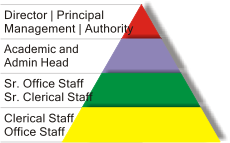Preparing for the semester exam
Doing well on semester exams is not luck; it is the result of knowledge and effort.
Here are a few tips on preparing for final exams:
1 – Manage your time efficiently
- Use a final exam planning calendar listing all assignments, projects and exams that must be completed before the semester ends
- List realistically the amount of time needed to complete any outstanding work
- Begin reading and review; schedule time on your planning calendar
2 – Make Academics Your Top Priority
- Don’t make the mistake of resting up before finals; this is the time to push hard
- Break down tasks, switch subjects, plan rewards to maintain motivation
- Decide what you can postpone in your life until after finals
3 – Set Priorities for Exams
- Reevaluate academic goals
- Look closely at where you stand in each class; determine which exams need more effort
- Know what score you need on the exam to achieve your goal
- Never give up on any class!!
- Setting priorities can improve your GPA
4 – Reduce Test Anxiety
- Some anxiety is normal
- Keep feelings of anxiety from interfering with your performance
- The more prepared you are, the less anxious you will feel
- Breathing exercises can reduce feelings of anxiety
5 – Make a Final Exam Study Schedule
- Set up a Study Schedule; be specific
- A Five-Day Study Plan is proven to work well; studying too early is inefficient; too late means too little retention
- Space your studying out
- Study one “chunk” of material per study session; include a review of the previous section studied during that session
- Cramming 15 chapters into one long session will cause partial knowledge of the material
- Multiple sessions = repetition = increased retention
- Split your day to prepare for multiple exams
- Use your study schedule
- Prepare for more than one exam at a time
- Cover one subject for a period of time; take a break; study another subject for a period of time; change subjects again; go back to the first subject, etc.
- Make sure to schedule breaks for a reasonable amount of time; remembering to keep on schedule
- Study sessions are best at 50 minutes or less per subject; take a 10 minute break in-between sessions
6 – Know the break down of new versus old material that will be on the exam
- If the exam is 25% comprehensive (25% over old material and 75% new material) then spend 25% of your time on the previous material and 75% on recent material
- If the exam is 50% comprehensive, split your time 50-50 by spending 50% of your time on the older material and 50% of your time on the new material
- And so on for any other percentage break downs.
REMINDER – Make a plan and stick with the plan. If you get off course, it is never too late to get back on track.
Source:http://portal.chaminade-stl.com/Default.aspx?tabid=4854
 -Certified OEM on
-Certified OEM on 




